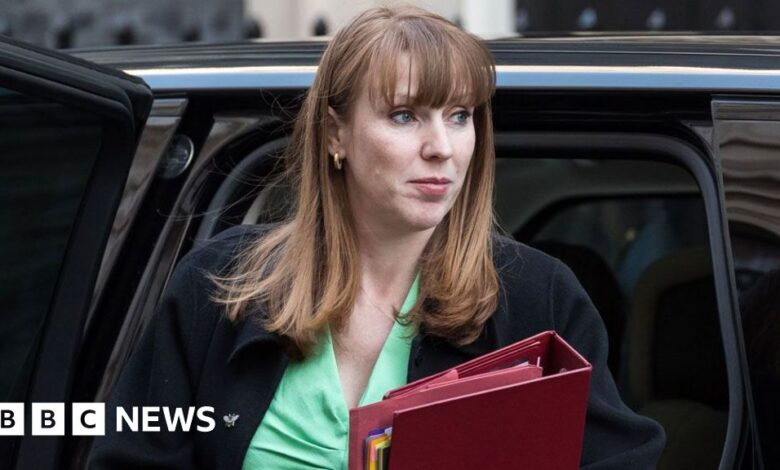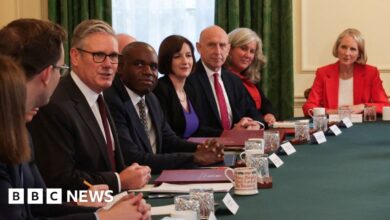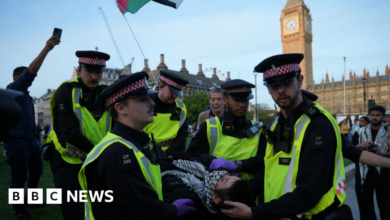Rayner’s replacement will show which way political wind is blowing

As Westminster ponders what impact last week’s reshuffle might have on the direction and instincts of the government, and its capacity to deliver, the resignation of Angela Rayner leaves one still unfilled vacancy.
Her former government jobs, deputy prime minister and housing secretary, have been taken by David Lammy and Steve Reed respectively.
But her role as deputy leader of the Labour Party, a position directly elected by Labour’s members, is now being contested.
Westminster likes elections like nothing else, and here comes another one.
The timetable is tight. Nominations open today, with a winner announced on 25 October.
To stand, candidates must have the backing of at least 80 MPs and secure that backing this week, and either 5% of local parties or three Labour affiliated groups.
The left wing Labour MP Richard Burgon, who served on Jeremy Corbyn’s front bench, described it as “the mother of all stitch ups” and later added “despite the stitch up, Labour members deserve a Left candidate on the ballot.”
But plenty in government and in the wider party want to get the contest done quickly and with minimal noise.
The party’s general secretary Hollie Ridley told Labour MPs that it was essential that “we will remain mindful that the Labour Party’s primary duty is to serve the country”,
Translation: let’s not tear ourselves to shreds in public with Labour folk falling over themselves to say why the government hasn’t been good enough.
“If there’s a contest and you’re in government, it is very hard to see how it goes well,” one longstanding Labour figure tells me.
“We should take the opportunity to abolish the post altogether. It’s existence only feeds factional infighting,” another MP texts, just ahead of the timetable for the contest being set out.
This vacancy coincides with a reshuffle that many within the party and beyond regarded as the government tilting to the Right.
When the Telegraph of all news organs heralded what it called “a welcome Rightwards shift” then perhaps it is little wonder that some on the party’s soft Left as well as hard Left might be jittery.
They might want those jitters to be expressed and personified in who replaces Angela Rayner.
“If the leadership put forward a serving minister, it could backfire quite badly. The reshuffle was about a particular faction in the party. It eliminated the soft Left from positions of influence,” claims a Labour veteran.
Entering the contest this morning, Education Secretary Bridget Phillipson, who happens to be addressing trades unionists at the TUC Congress in Brighton this afternoon.
She and No10 will hope she hoovers up vast amounts of support among MPs to try to give the outcome of any race an air of inevitability.
A fellow minister, Alison McGovern, is also weighing up running.
But if those outside government, such as Emily Thornberry and Lucy Powell, can persuade enough MPs to back them, they would be far freer to speak their minds in a contest.
While either Thornberry or Powell would offer a critique of the government from the Left, others say neither are a true voice of the Labour Left and bemoan a timetable they are convinced is designed to squeeze out a candidate such as Bell Ribeiro-Addy.
In the meantime, how loud does the contest become?
And then, when we know the winner, the prime minister will have to work out what to do with the party’s new deputy.
Recent precedent suggests they take a role in government – as Angela Rayner did, and as Harriet Harman did, when she won the deputy leadership in 2007 when Labour was in government.
But perhaps that won’t happen this time.
“I think that is less of a consideration actually,” Health Secretary Wes Streeting has said.
The consequences of the Angela Rayner property saga are not over yet for Labour.




